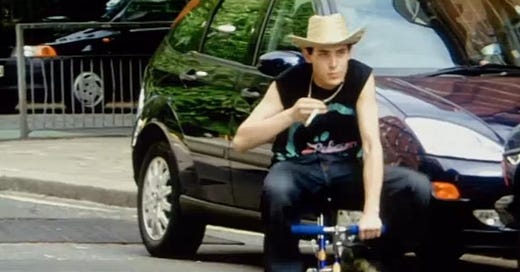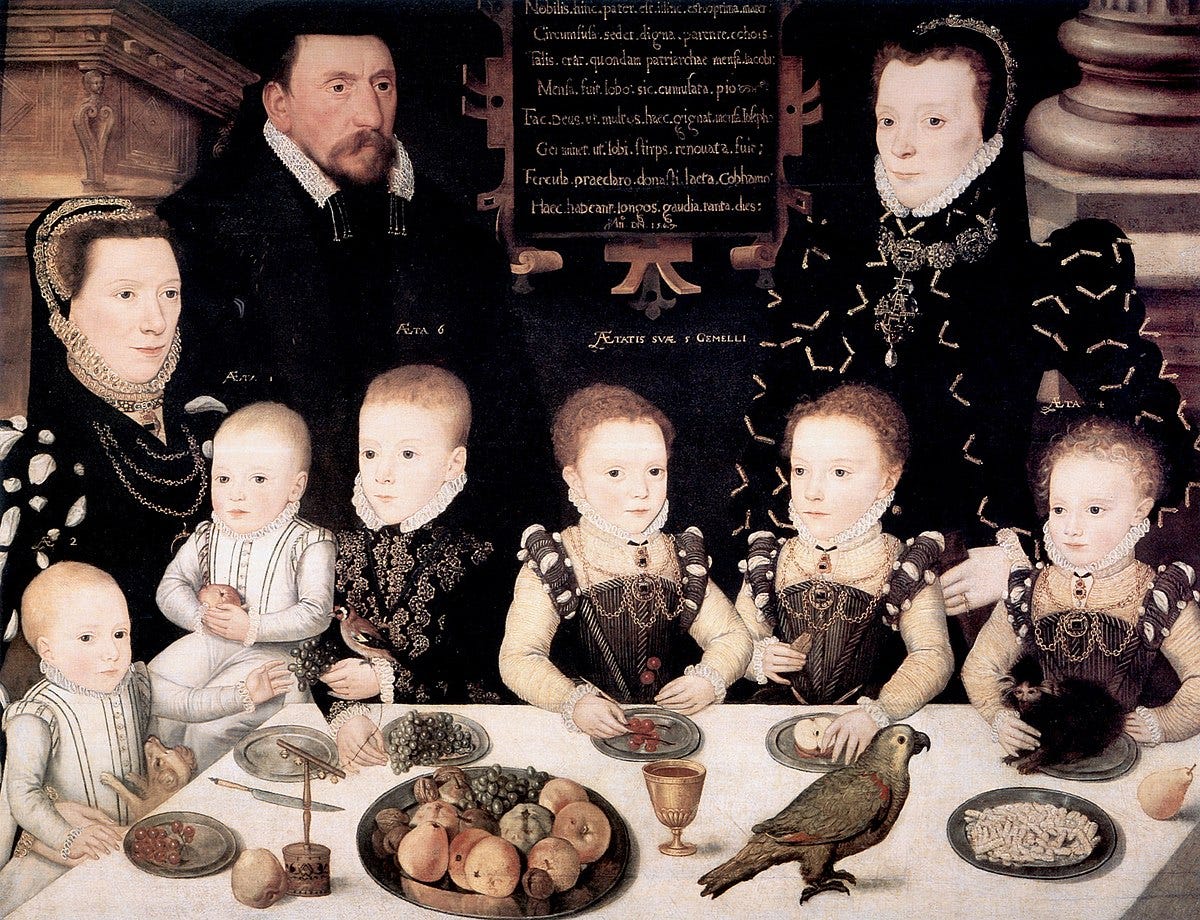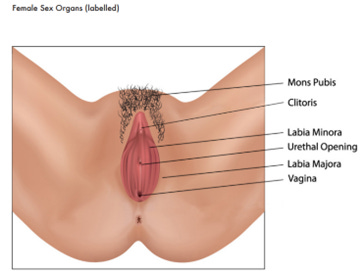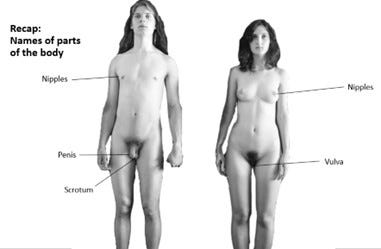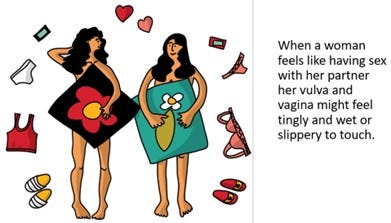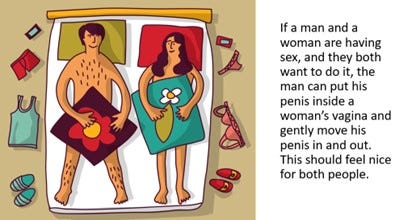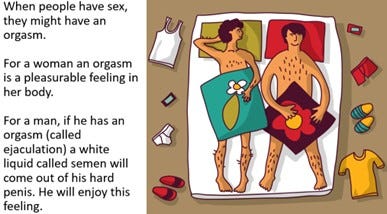Scottish Union for Education – Newsletter No17
Newsletter Themes: collapsing adulthood and childhood, sexualised education, and evidence of indoctrination in schools.
This week Stuart Waiton discusses the interconnected collapsing sense of both adulthood and childhood and argues that this will inevitably lead to the abuse of children, teacher Colin Smith explains in detail how schools are sexualising children, and Jo-Anne Nadler reports on the latest evidence that schools across the UK are indoctrinating children through what she calls the social justice educational complex.
The collapse of adulthood will inevitably result in the abuse, not the liberation, of children
Stuart Waiton is Chairperson of SUE
The idea of breaking down boundaries and borders tends to be celebrated today. But what happens if the boundary between childhood and adulthood is blurred?
A recent Scottish Daily Mail headline read, ‘30% increase in teachers banned for misconduct’, and the report went on to state that ‘recent offences [include] substance abuse, violence and inappropriate relationships with pupils’.
The Daily Mail is renowned for promoting moral panics, and indeed this figure may be a blip or more to do with how misconduct is treated and recorded today. But it caught my attention, in part at least, because over the past four or five years I have noticed a number of cases of teachers being struck off for having affairs with their pupils – and in many, possibly most of these cases, the teacher has been a woman.
Perhaps this has something to do with the changing nature of relationships between men and women, where it is becoming more of a norm to find older women dating younger men. It may, however, also be a reflection of the more infantile nature of adulthood.
Since at least the 1990s, books have been written with titles like, Arrested Development: Pop Culture and the Erosion of Adulthood, Men to Boys: The Making of Modern Immaturity, and The Death of the Grown-Up: How America’s Arrested Development Is Bringing Down Western Civilisation.
The last of these three titles sounds rather grandiose and hyperbolic – as if western civilisation is collapsing! But then again, the very use of the term ‘civilisation’, even since this book was written in 2007, has grown so out of favour that I’ve come to expect the term to come with speech marks used as a kind of knowing exclamation – ‘As if there is such a thing as civilisation – YOU FASCIST!’
The idea of civilisation and of being civilised may have lost its appeal, but we should bear in mind that one of the great gains of civilisation was what is called the ‘invention of childhood’.
Childhood as we think about it, as a separate and distinct stage of life, a part of life when you are protected from adult responsibilities, is a relatively recent invention and in fact one of the great achievements of the modern world.
It came about in part with the increasing expectation that adults be educated, independent and free – something that evolved with the changing nature of society itself, and with a more sophisticated and knowledgeable world.
Find a portrait or work of art from around or before the sixteenth century and you’ll find that children were generally depicted as mini adults – even the body shape of the child strikes the modern viewer as wrong and more than a little creepy.
William Brooke 10th Baron Cobham and family, 1567.
The modern sense of the child and of childhood as very different from the adult and adulthood developed in conjunction with the growing maturity and sophistication of the modern free ‘man’ (in the broad sense of the word). But the association of the idea of the man, or the adult, and indeed of adulthood, with maturity, wisdom, and being civilised, has itself withered.
Just as we tend not to dress children as children, with short trousers for boys, for example, we adults tend to want to be and to look young. I’m watching an Apple TV series at the moment called The Big Door Prize that tells the tale of a small town in America where a strange machine turns up in a local shop that tells everyone what their potential is. As a result all the adults then start to search for and express their ‘true selves’ – as if having a job and a family and grown-up responsibilities is somehow a barrier to your real potential self.
And it has become a thing to find adults searching, in a way that was previously associated with adolescents, to find and express their true selves, in part, perhaps, because the world in which we live struggles to give us a wider sense of purpose or meaning – of what being an adult actually means.
Being an open-minded and flexible adult who is excited by new experiences is not a problem in itself, but when this comes at the expense of our sense of maturity and adulthood, it has potentially serious implications.
One of these can be seen in the way that some teachers lose that other important boundary, between what is your public and what is your private self.
SUE has been coming across stories, for example, of primary school teachers constantly announcing to their class that they are bisexual. And you can find YouTube clips of activist teachers who proudly explain how they promote their sexual selves to their class: this is often done as if this is about educating the kids, but there is more than a hint of an infantile form of narcissism and self-absorption expressed by these boundary-breaking teachers.
At an institutional level we find, since 2010, organisations like the World Health Organisation promoting not sex but ‘sexuality’ education, with guidance documents that explain how ‘sexuality education starts from birth’ and insisting that nursery-aged children be educated about ‘early childhood masturbation’.
In Scotland we also find videos, like this one by Graeme Ross of LGBT Youth Scotland, insisting that children from the age of three need to be free to express their ‘gender identity’.
It’s interesting to note that in this video, Ross expresses a clear contradiction. On the one hand he talks about 3-year-olds as if they are adults with necessary freedoms and the ability to choose their ‘gender identity’. Yet on the other hand, he simultaneously notes that ‘Children in early years at primary school are like sponges’.
Well, which is it? Should we abandon our sense of adulthood and childhood and encourage 3-year-olds, who have just got past the stage of potty training, to express their true, free selves? Or are 3-year-olds ‘sponges’ who soak up the adult message that Ross wants to pass to them about their ‘gendered’ selves?
For Ross, when the idea that ‘boys will be boys’ is instilled, it is a stereotype and indeed discrimination. But when the correct message that boys might be girls is indoctrinated by nursery teachers, it magically becomes liberation.
(Note to Mr Ross: liberation is an adult activity, not one that exists in infants. Why? Because infants, unlike adults, are ‘sponges’ who lack the capacity to make independent choices about their lives. When ‘experts’ tell us that 3-year-olds are free to make their own decisions, what we are really talking about is adult indoctrination).
As the boundaries between childhood and adulthood break down, not only do we find that some teachers lose a sense of what is right and wrong at a personal level, but institutions and organisations emerge that actively encourage children to adopt adult preoccupations and obsessions about sexuality and gender.
In our increasingly immature and self-absorbed culture, the inner and sexual self becomes ever more important and is ultimately celebrated and promoted by our infantilised educators who are undermining the civilised distinction between what it means to be an adult and what it means to be a child.
In Scotland, most recently, the result is that 12-year-old children trapped in the care system are now to be ‘liberated’ to make decisions about ‘trans-affirming medical care’!
If you have concerns about the deeply inappropriate and damaging indoctrination taking place in your local school get in touch: info@scottishunionforeducation.co.uk.
The Brave New World of Scottish primary education
Colin Smith is principal teacher of English at an independent school in the West of Scotland. He is concerned about the methods and aims of the RSHP curriculum.
A nurse rose as they entered and came to attention before the Director.
‘What’s the lesson this afternoon?’ he asked.
‘We had Elementary Sex for the first forty minutes.’...
The Director walked slowly down the line of cots. Rosy and relaxed with sleep, eighty little boys and girls lay softly breathing.
The above quote is from Aldous Huxley’s Brave New World. The characters work in the Central London Hatchery and Conditioning Centre, a place where children are produced by machines, reared in strict conditions, and sexualised from an early age. And I do mean an early age:
In a little grassy bay between tall lumps of Mediterranean heather, two children, a little boy of about seven and a little girl who might have been a year older, were playing, very gravely and with all the focused attention of scientists intent on a labour of discovery. A rudimentary sexual game.
I’ve been thinking about this book since I recently attended a meeting of concerned parents in Glasgow’s Southside and spoke to them about the Relationships, Sexual Health and Parenthood (RSHP) curriculum, a subject that I have previously written about here. My claim was that the resources sexualise children by irrupting sex into their lives and forcing them to confront and engage with their own latent sexuality.
Although my talk was brief – quickly leading to a discussion on the subject matter – it focused on the sexualising content of the Second Level RSHP resources. I’d like to take this opportunity to expand on my points and to suggest that perhaps Huxley’s dystopian speculations are manifesting within the Scottish school system.
To sexualise means to render sexual or to endow with sexual characteristics; linguistically and semantically it’s a very straightforward concept and is entirely unambiguous – we all know what it means. And as we all know what it means, we can all recognise it when it is happening. Let me ask you: is this image, which is taken from the Second Level RSHP resources (aimed at children in P5, 6 and 7) sexualising?
Given that the diagram is headed Female Sex Organs, I think we can state that within the simple definitions of the word ‘sexualise’, yes, this is a sexualising image: it endows children with sexual characteristics and renders them sexual – it moves the mind’s focus onto sexual matters. This resource is interactive in that children (as young as eight) are given the image unlabelled and asked to label it, working from the trimmed and partner-conscious pubic hair, down to the clitoris, and ending with the vagina, situated just above the anus. I’ve been told that the anus was initially designated as part of the sex organs, but that this was removed. The anus is, however, very much a part of this curriculum, although children will have to wait until first year, when they’ll be eleven, to learn that:
‘Anal sex is when a man puts his penis into a man or a woman’s anus (bottom).’ (Third Level RSHP for S1, 2 and 3 students).
In case the diagram is a little abstract for the eight-year-olds, here is what some may see as a gratuitous picture of naked adults for them to look at (Second Level RSHP):
We didn’t label sex organs when I was eight, and we didn’t look at pictures of naked adults. Back then, school was about other things.
The lesson becomes more personal when teachers get on to the subject of wet dreams, telling children that:
‘When a boy is asleep he can get an erection. He might ejaculate. Ejaculation is when semen comes out of the boy’s erect penis. When a girl is asleep her vulva can become wet and slippery.’ (Second Level RSHP).
Ejaculating penises and slippery vulvas – two phrases you wouldn’t expect to hear in primary school. Evocations of child sexual excitement are tawdry and should be anathema in schools; and the focus of education should be elsewhere – above the neck, preferably. I believe that the overwhelming majority of parents would object to this type of language and these images being foisted on innocent children. I was struck at the meeting by stories of children coming home from school in tears, upset by the content of these RSHP lessons. Is it any wonder? I was angered by a man saying that his daughter wakes up on the day of these lessons and does not want to go to school. Who can blame her? I was baffled at the story of a little boy dipping tampons in orange juice because I just do not understand what the point of it is. Do parents want this? Do children want this? And there are teachers (some of whom were at the meeting) who feel debased having to present these resources in their classroom.
The sexualisation continues apace in the Touching your private parts section of the lesson, when children are told that
‘Some children touch their penis or their vulva because it can be soothing or enjoyable. This is okay.’ (Second Level RSHP).
If the eight- and nine-year-olds weren’t thinking about masturbation (which they weren’t) before this concept was introduced into their heretofore innocent minds, then I dare say they were after. This, quite clearly, is a sexual rendering of the mind. Trusted adults, teachers charged by parents with the education and safekeeping of their children, up and down the country are telling a captive audience of kids that they might find it ‘soothing’ and ‘enjoyable’ to touch their private parts ... and they call it education. I call it sexualising children. It’s hard to believe that this is going on. As a parent, I find it to be disturbing; as a teacher, I find it to be shameful and a betrayal of a trust.
I wonder how many parents are aware of what their children are being exposed to in the classroom? I wonder how many people still consider primary schools to be innocent places of learning, creativity and fun, the sole focus of which is inculcating the fundamentals of learning to produce happy, healthy children?
What is alarming is that school and local authorities seem to have a developed an immune response to parents who are scandalised by this. I heard stories of schools obfuscating, being evasive, and outright lying to parents who have asked questions about the RSHP curriculum. The subtext of all these interactions is that schools really don’t consider it to be a parent’s business what their child is told by teachers; that a parent’s ambit ends at the school gate; that a push to sexualise children is entirely within the competency and authority of the state. Don’t want your eight-your-old daughter to learn about masturbation because you as her mother consider that a child who loves unicorn backpacks and stories about horses is too young? Tough. None of your business. You’d rather your son used his Star Wars pencil to write a story about himself playing for Barcelona instead of writing ‘labia minora’ on an explicit image? Go away and come back at half three.
What are they hiding? What don’t they want you to know about? Surely they aren’t chary about you seeing these ‘child-friendly’ cartoon images of people just about to have sex? (Second Level RSHP).
The bright colours and smiling cartoon faces indicate that this content is very much aimed at children: it takes aspects of adult life and makes them more palatable to kids, drawing parallels with the types of media that they consume at home, in an attempt to assuage the natural aversion that children have for (what used to be) adult material. If these cartoon images and the accompanying text aren’t designed to render a child’s mind sexual, then what are they for? Any argument that sex is reserved for monogamous relations is undone by showing the same characters naked with both men and women. Sex is a free-for-all, the pursuit of gratification with anyone. Hey, kids, sex is “pleasurable”, it will “feel nice”, it’s “enjoyable”. Look at the cartoon characters; see how happy they are. The odd cartoon we got to see in primary school warned us about going off with strangers or going on railway lines. It would have been unthinkable then to parade these images in front of children, just as it should be unthinkable now.
You might be wondering, if you haven’t read Huxley’s novel, why the ruling authorities want to sexualise children. The reason, in my opinion, is because the promotion of monogamous lifestyles leads to strong families, and a loyalty to, and focus on, the family before all else. Promiscuity, on the other hand, diminishes the family and allows the state to claim the loyalty of citizens; and what is learned young is learned best. It’s much more difficult to control people if they are loved and cherished within a strong family, but if you can turn them into lifelong hedonists, rootless and isolated...
It’s unpleasant to write about these things as an adult. Parental testimonies tell us that it’s even more unpleasant, traumatising even, for children to have to see these things in school. Little wonder that there is a push in education for schools to be trauma-informed when they’re traumatising their students. It’s up to all concerned adults to firmly impress upon schools that these sexualising lessons absolutely must be removed. They’re damaging, highly inappropriate and, frankly, dystopian.
Show tell and leave nothing to the imagination: how critical social justice is undermining British schooling
Jo-Anne Nadler writes and comments on political and social affairs. Her career has spanned BBC current affairs, think tanks and publishing. She is now a campaigning parent.
In October 2022 The Critic magazine published an article I had written about trends that had emerged over the previous two years in my son’s school, an independent boys’ school reputed for academic rigour. In newsletters previously concerned with sports fixtures and exam timetables it had become commonplace to see phrases such as ‘white privilege’, ‘unconscious bias’, ‘toxic masculinity’ and ‘micro-aggressions’. These are expressions associated with political campaigns, hence the pique in my attention.
Our conventional school year, broken (at least nominally) by national celebrations around Christmas and Easter, had been augmented so that terms can now be noted as those celebrating Black History Month, International Women’s Day, and various alphabetic variants of LGBTQ History month. The school flag, symbolising common purpose within an admirably multifaith, multicultural community, is now routinely joined by a Pride Flag, imposing as dominant, and assuming universal adherence to its associated vein of self-appointed ‘social justice’ values. If this were merely denoting support for the broadly liberal consensus shared by most British people, it would be of little concern, but the social justice signalled here is the partisan discipline critical social justice, that encompasses a range of identity-driven ideologies. Whether delineated by race, sexuality, ‘gender’ or various other characteristics, critical social justice projects the world as a system of hierarchies within which competing claims to victimhood sometimes coincide (that is, intersectionality) but are also progressively at odds, such as the increasingly bitter clash between sex-based rights and trans advocacy.
As a result of the article, Civitas invited me to look more closely at these issues, suspecting that what I had noticed was far from a limited experience. So far indeed, it is reasonable to characterise what has happened in British schools, regardless of location or type of school, as a revolution.
It is a revolution that has been delivered largely by stealth but to which many parents and teachers are now alert, despite politicians remaining wary of acknowledging it. It has injected political ideology into schools, both organisationally through the adoption of equality, diversity and inclusion (EDI) policies relating to hiring, admissions and the wider school culture, and directly into the classroom through curriculum initiatives, via many legislative interventions with their associated, often unaccountable, agents. It is a process that has disrupted the distinct remit of schools and of teachers to educate, by adding responsibilities for areas akin to social care, mental health, and even the security services. Some of its agencies are state actors, albeit at arm’s length, others international organisations – and accompanying this is a burgeoning industry of private and third-sector external providers and self-declared ‘expert’ consultants on issues such as race, equity, gender and sexuality. This unholy alliance constitutes what might be labelled a ‘social justice educational complex’.
The influences on school life have always been the subject of debate, with flash points of concern – such as those leading to the introduction of Section 28 in the 1980s, or the controversy behind Victoria Gillick’s attempts to test the boundaries of parental rights. However, the growing complexity and reach of our state apparatus and the interaction with new technologies increasingly standardises schooling, leaving it particularly vulnerable to political manipulation. The actions and aims of the social justice educational complex are certainly radical because they are driven by a set of convictions that conflict with what has been our common understanding of the boundaries between state and family, between adults and children, and between individual conscience and imposed groupthink.
Without doubt, many advocates for this movement have the best intentions, but its dangers are manifold – most notably to our established understanding of what is a good education, as teaching children how to think is being replaced with an activist-led vision designed to teach children what to think. Ironically, given its much-proselytised justification of ‘diversity’, this trend is unpicking the key tenets of what we generally understand as a ‘liberal education’, to respect plurality of opinion, and replacing it with an illiberal, uniform worldview on contentious social issues. Collectively we have been aware of, yet generally complacent to, this direction of travel within our universities, so it should be no surprise that what some call a ‘snowflake generation’ of undergraduates may have been aided on their journey towards posturing vulnerability while still at school.
The influences on children are of course both far wider and more targeted (now with algorithmic precision) than those they simply encounter at school. However, material presented in the classroom or during an assembly has particular authority, hence the requirements on schools in England and Wales not to indoctrinate (Education Act 1996 Section 406 and Section 407) and The Education (Independent School Standards) Regulations 2014 (parts 5C and D). It may be reasonable that race, sex, climate change and even gender are considered at school, but the challenge is ensuring that such discussions remain age-appropriate and impartial. Widespread anecdotal evidence to the contrary, including an extraordinary rise in home schooling (up by 40 per cent since 2018 according to well-researched estimates [1] and which suggests that parents are losing confidence in conventional schooling) is now supported increasingly by research indicating that despite new guidance issued by the Department for Education in 2022, schools are failing in their duty to maintain impartiality.
Civitas has undertaken its own research, polling pupils aged 16 to 18 and parents of children aged 12–16. The results appear to underline the change in school culture. We found that a great majority of pupils had encountered at least one of a list of partisan concepts at school, the list included ‘white privilege’, ‘unconscious bias’, ‘toxic masculinity’ and ‘gender/trans ideology’ at school, with only 14 per cent not to have done so. As many as 42 per cent of the pupils we surveyed reported that they had been taught that Britain is currently a racist country, and 41 per cent that ‘young men are a problem for society’.
When presented within a pluralist approach it is completely appropriate that debates about racism and colonialism are well established in schools as they are properly in wider society, but the concept of ‘gender ideology’ as a suitable discussion for schools will seem to many as having come out of nowhere, although it has spread quickly and widely. Thirty-two per cent of the pupils we spoke to told us that they had been taught or had discussed in school the idea that ‘a woman can have a penis’, and 20 per cent said they had been told at school that ‘a man can get pregnant’.
It may not be completely surprising then, but no less concerning, that of the children we surveyed, one in 10 (10 per cent) said that they want to, or had previously wanted to, change their gender.
Just as alarmingly for an educational setting, as many as 46 per cent of pupils surveyed said they would not feel comfortable contributing their opinion on gender and sexuality within school.
This is the introduction to the Show Tell document published by Civitas in May 2023 – the full report is available here.
1. From the article: “Numbers of home-educated students have jumped by 40 per cent since 2018, Freedom of Information requests reveal. In the 171 local authorities that provided data, there were 81,250 children learning at home in 2022 compared to 57,531 four years ago, before the pandemic.”
News Round-up
A selection of the main stories with relevance to Scottish education in the press in recent weeks.
https://www.scottishdailyexpress.co.uk/news/politics/minister-accused-heartbreaking-betrayal-sex-28948168 Jessica North, Minister accused of 'heartbreaking betrayal' as sex abuse survivor calls for government review of LGBT quango. 15/01/23
Stephanie Edmonds, I Was a Girl Who Wanted to Be a Boy... But I grew out of it. 10/05/23
https://reduxx.info/exclusive-two-survivors-allege-they-were-groomed-sexually-exploited-by-staff-at-scottish-lgbt-youth-charity/ Reduxx Team, Two Survivors Allege They Were “Groomed,” Sexually Exploited By Staff at Scottish LGBT Youth Charity. 22/12/22
https://archive.vn/2023.05.10-201750/https://www.telegraph.co.uk/news/2023/05/10/scotland-young-children-trans-puberty-blockers-health/ Daniel Sanderson, Children as young as 12 can have puberty blockers, Scots watchdog says. Experts concerned over social care regulator’s guidance for bodies helping young people who declare themselves transgender. 10/05/23
https://www.spiked-online.com/2023/05/10/parents-are-right-to-be-angry-about-drag-queen-story-hour/?utm_source=Today+on+spiked&utm_campaign=a75b4ef83d-EMAIL_CAMPAIGN_2023_05_10_05_15&utm_medium=email&utm_term=0_-a75b4ef83d-%5BLIST_EMAIL_ID%5D Lauren Smith, Parents are right to be angry about Drag Queen Story Hour. Why has a Munich library invited an act called ‘Eric Big Clit’ to read to four-year-olds? 10/05/23
https://civitas.org.uk/publications/show-tell-and-leave-nothing-to-the-imagination/ Jo-Anne Nadler, how, tell and leave nothing to the imagination: How critical social justice is undermining British schooling. May 2023
https://thecritic.co.uk/gatekeeping-the-safeguarders/ Josephine Bartosch, Gatekeeping the safeguarders. We should put children before ideological conflict. 18/05/23
https://www.dailymail.co.uk/news/article-12082967/Fury-WHOs-sex-education-early-childhood-masturbation-FOURS.html Chris Brooke, Fury over World Health Organisation's sex education about 'early childhood masturbation and gender identities' for UNDER-FOURS. 14/05/23
https://www.bbc.co.uk/news/education-65473198 Lauren Moss, Teachers walk tightropes in face of no trans guidance. 19/05/23
https://www.spectator.co.uk/article/the-trans-butcher-and-the-disaster-of-the-snps-self-id/ Iain Macwhirter, The trans butcher and the disaster of the SNP’s self-ID. 19/05/23
Thanks for reading the SUE Newsletter.
Please visit our Substack
Please join the union and get in touch with our organisers.
Email us at info@scottishunionforeducation.co.uk
Please pass this newsletter on to your friends, family and workmates.

